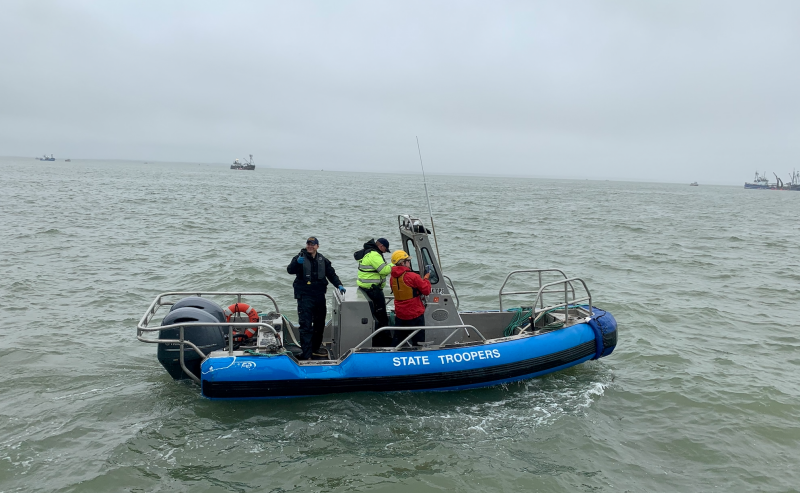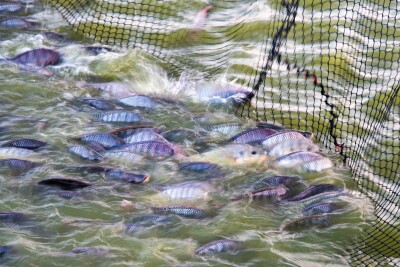“Enforcement will be focused on performance.”
– Capt. Aaron Frenzel, Alaska Wildlife Troopers
In the letter, Col. Bernard Chastain wrote: “The Alaska Wildlife Troopers are aware of the increasing concern fishermen have regarding drift gillnet vessel lengths in the Bristol Bay Salmon Fishery. AWT has inspected multiple vessels post-season and have noted several areas of concern regarding overall length in the fleet.
“The Bristol Bay vessel specifications are described in 5AAC 06.341 (a provision in Alaska state regulations). The regulation limits drift gillnet vessels to 32 feet in overall length, with a few exceptions.”
The exceptions include anchor rollers that extend less than 8 inches from the bow, drop out baskets and outdrives, among other things that fall within strict definitions.
What concerns many fishermen, boatbuilders and Pacific West Refrigeration in particular, is the last bullet on the list of things that are not exempted.
“Miscellaneous items like refrigerated seawater systems, washdown systems, transducers, exhaust, ladders, platforms, and other items have been located aft of the transom are not authorized to be beyond the 32-foot overall length,” says Col. Chastain.
The Pac West RSW (refrigerated seawater) systems used by an estimated 250-300 vessels in the fishery, include the transom mounted coolers that the Alaska Wildlife Troopers letter specifically lists as an “illegal modification.”
“We’re working on it,” says Shelly Boutilier at Pac West. “We were surprised that RSW coolers are not exempt. Ours is a superior product that maintains a high-quality fish and doesn’t suck up mud and sand into the system.”
Boutilier believes it is unlikely the AWT will shut hundreds of boats out of the fishery for the season. “We’ve been doing this for 10 plus years. Now it’s a problem?”
While it may be a problem sometime in the future, Capt. Aaron Frenzel of the AWT makes it clear that the focus of enforcement this year will be on performance-enhancing modifications. “Though some quality and safety modifications are outside of the current regulations, AWT does not have the manpower to focus on those at this time,” says Frenzel.
“What we’re trying to do is work with the fleet to bring boats into compliance. Over the years the accordion has kind of opened up – we want to squeeze it back. We want people to start looking at their boats and making changes if needed. We’re not out there to take boats out of the fishery, but we will have to act if something is egregious.”
Jason Rozema, vice president of operations at Rozema Boat Works, notes that his shop is mounting transom coolers.
“We’re giving the customers what they ask for,” says Rozema. “We did mount some rollers last year that tilted back 9-inches, and I have heard that those guys are changing them.”
“That’s the kind of thing we’re hoping for,” says Frenzel. “We’ll be out there helping people look at their boats and get into compliance. But as I said, enforcement will be focused on performance.”







